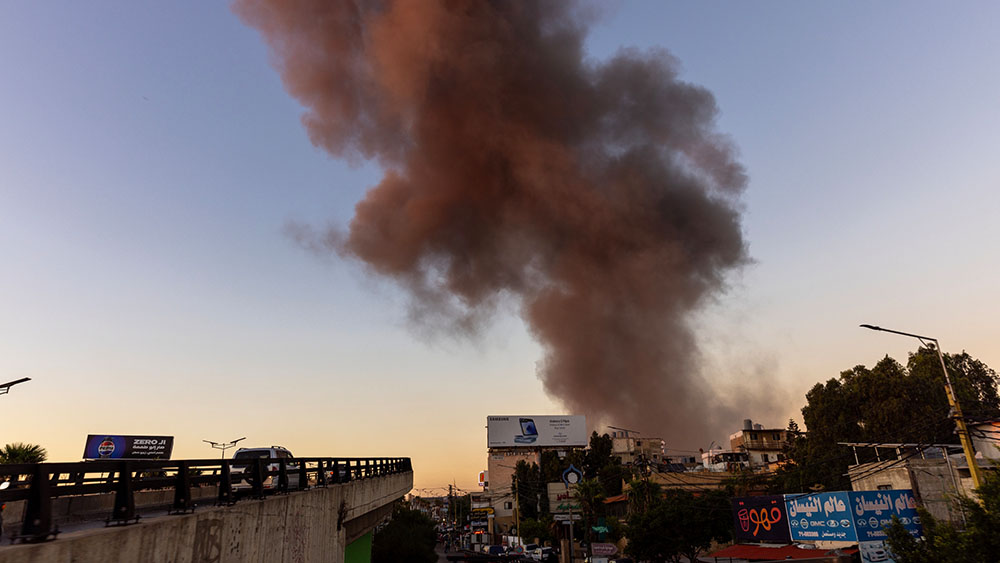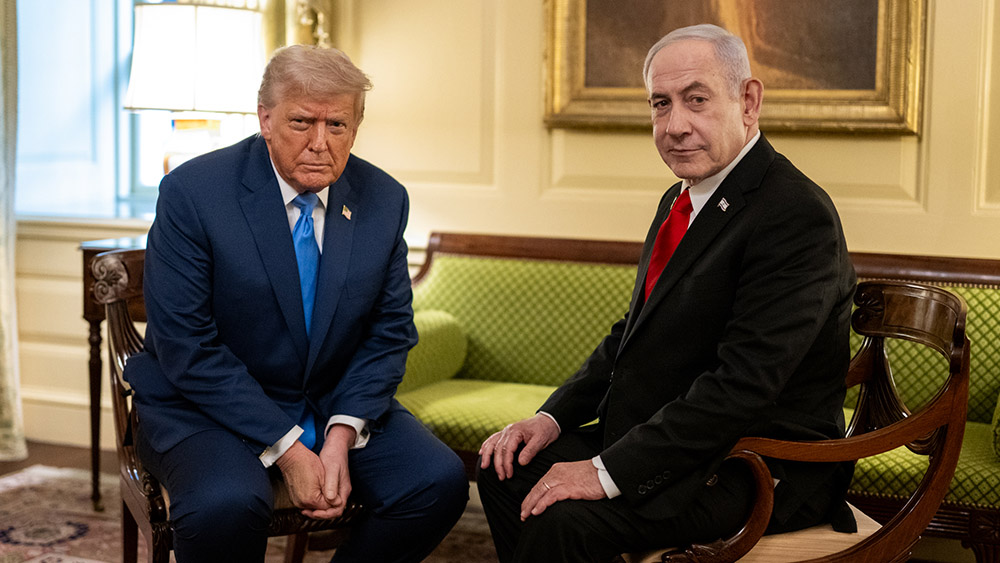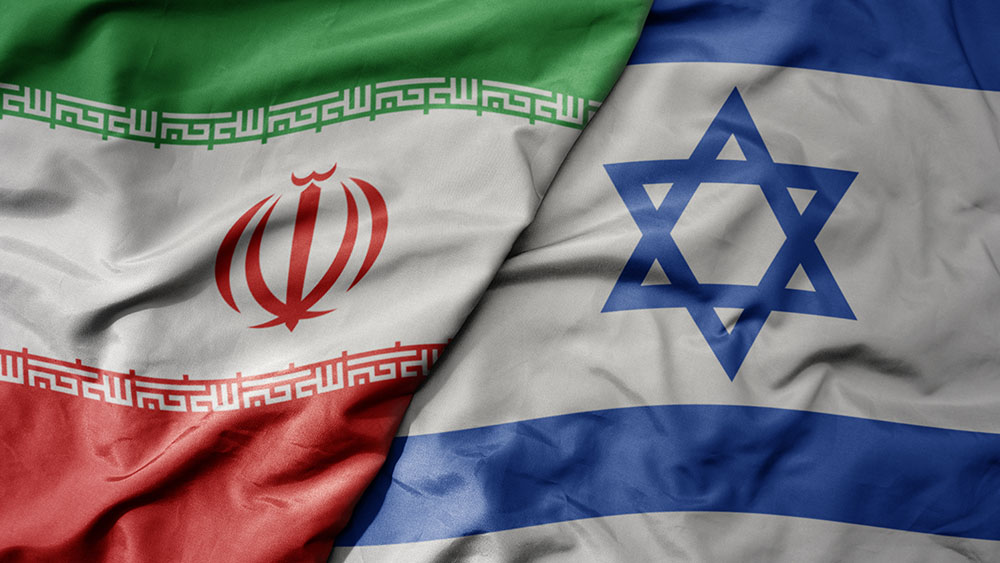 Parler
Parler Gab
Gab
- IDF targets alleged Hezbollah weapons storage and rearming efforts, violating UN Resolution 1701. Lebanese President Joseph Aoun condemns strikes as "fully fledged crimes" amid Lebanon's willingness to negotiate. Hezbollah vows resistance, accusing Israel of blackmailing Lebanon into political concessions.
- Recent IDF strikes killed at least 10, including Hezbollah commanders and civilians. UNIFIL warns attacks endanger civilians and destabilize the region.
- The U.S. prepares to establish a base in Syria to monitor a potential Israel-Syria non-aggression pact. Reconnaissance missions accelerate, raising concerns about deeper U.S. entanglement in regional conflict.
- Israeli Prime Minister Benjamin Netanyahu's provocations aim to justify U.S. involvement against Hezbollah, risking direct conflict with Iran. Iran may intervene to prevent Hezbollah's collapse, potentially drawing in Russia, which has strong ties to Tehran and Damascus.
- International pressure mounts for de-escalation, but diplomatic solutions remain uncertain. Without restraint, the conflict could spiral into a catastrophic regional war with unpredictable global consequences.
U.S. expands military role in Syria
The U.S. has been monitoring the situation, with plans to establish a military presence in Damascus to keep an eye on any potential pact between Israel and Syria. According to six sources familiar with the matter, including Western and Syrian officials, the U.S. is preparing to establish a military presence at an undisclosed airbase near Damascus. The move is reportedly part of Washington's push to broker a non-aggression pact between Israel and Syria—an unprecedented diplomatic shift following the fall of Bashar al-Assad's Iran-aligned regime. A Western military official confirmed that reconnaissance missions have accelerated over the past two months, ensuring the base's readiness for logistics, surveillance and humanitarian operations. Syrian officials emphasized that Damascus would retain sovereignty over the facility, though U.S. forces will operate there to monitor compliance with any future agreement. This development mirrors existing U.S. monitoring roles in Lebanon (overseeing the Hezbollah-Israel ceasefire) and Israel (monitoring Hamas-related truces). Syrian President Ahmed al-Sharaa is set to meet with U.S. President Donald Trump at the White House on Monday, Nov. 10—marking the first such visit by a Syrian leader—amid reports that Washington is pressuring Damascus to finalize a deal before year's end.Washington drawn into wider conflict?
The Trump administration finds itself in a precarious position. While it has largely avoided direct involvement in Israel's Gaza campaign, Israeli Prime Minister Benjamin Netanyahu's government appears determined to provoke Hezbollah—potentially dragging the U.S. into a broader conflict with Iran. U.S. Special Envoy Tom Barrack recently labeled Lebanon a "failed state" run by "dinosaurs," questioning whether its government could ever disarm Hezbollah. His remarks underscore Washington's frustration with Lebanon's inability to rein in the militant group, which boasts an estimated 100,000 fighters and extensive Iranian backing. If Israel continues its strikes, analysts warn that Iran may intervene directly to prevent Hezbollah's collapse—escalating tensions into a full-scale regional war. Such a scenario could also draw in Russia, which has deepened its military and economic ties with Tehran and Damascus in recent years. The U.S. military buildup in Syria and Israel's relentless bombardment of Lebanon signal a dangerous new phase in Middle Eastern geopolitics. With diplomatic efforts faltering and both sides digging in, the risk of a catastrophic regional war looms larger than ever. As the situation remains fluid, international pressure for a peaceful resolution will be crucial. The international community must urge Israel and Hezbollah to exercise restraint, engage in dialogue and prioritize the safety and well-being of their civilians. The world is watching, and the consequences of further escalation could be catastrophic. Watch this clip about IDF aircraft and artillery hitting Hezbollah targets in southern Lebanon. This video is from the Cynthia's Pursuit of Truth channel on Brighteon.com. Sources include: Edition.CNN.com TimesOfIsrael.com 1 TimesOfIsrael.com 2 BrightU.ai Brighteon.comTrump urges full PARDON for Netanyahu amid corruption trial, sparking debate over rule of law
By Kevin Hughes // Share
Ukraine’s “EnergyGate” scandal deepens: Zelensky allies implicated in $100M corruption scheme
By Kevin Hughes // Share
Iran claims dismantling U.S.-Israeli spy network amid escalating tensions
By Patrick Lewis // Share
Avian flu outbreaks spread across U.S. farms
By Patrick Lewis // Share
A new front: U.S. launches “Operation Southern Spear” against cartels
By Willow Tohi // Share
Governments continue to obscure COVID-19 vaccine data amid rising concerns over excess deaths
By patricklewis // Share
Tech giant Microsoft backs EXTINCTION with its support of carbon capture programs
By ramontomeydw // Share
Germany to resume arms exports to Israel despite repeated ceasefire violations
By isabelle // Share










